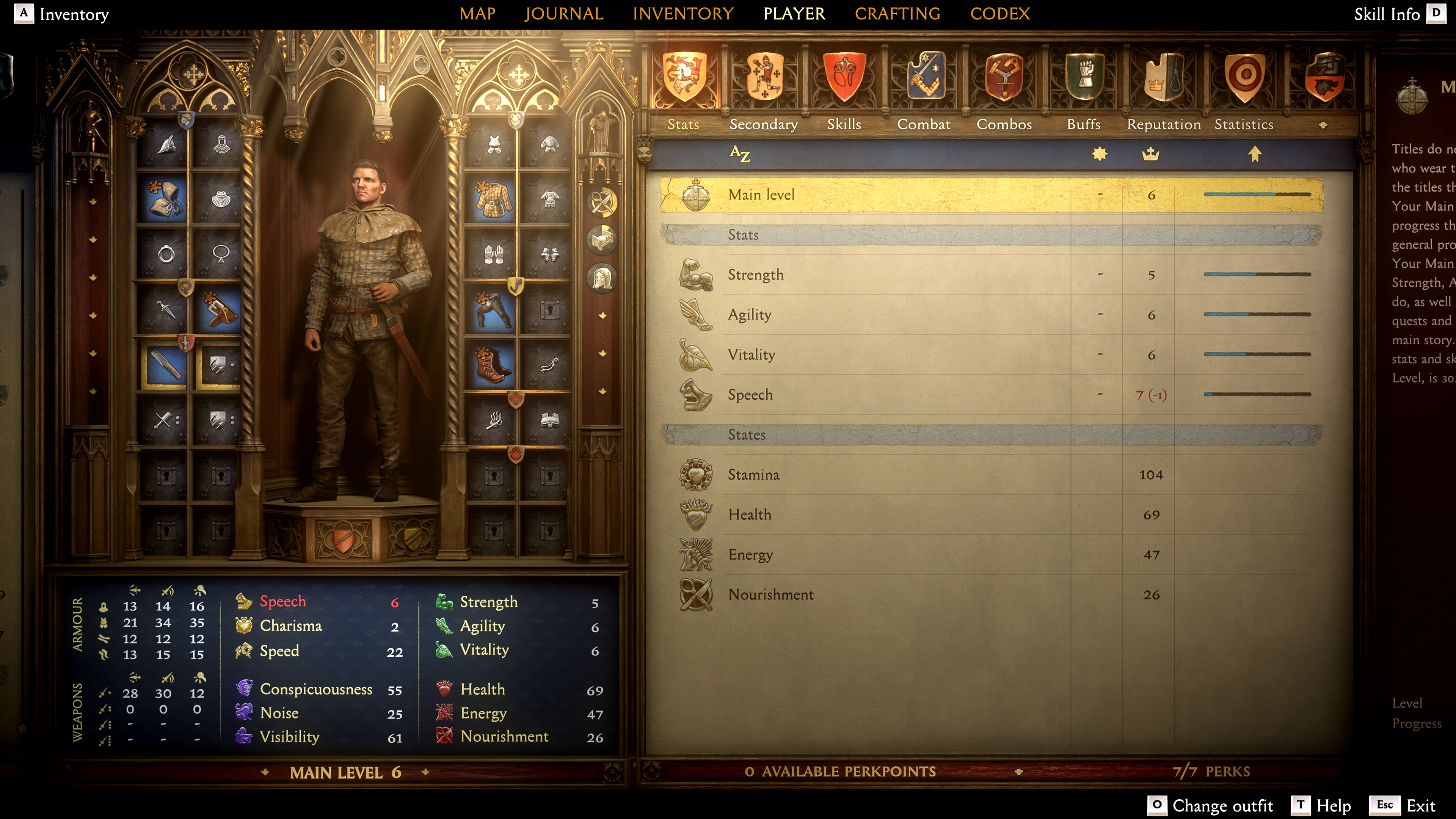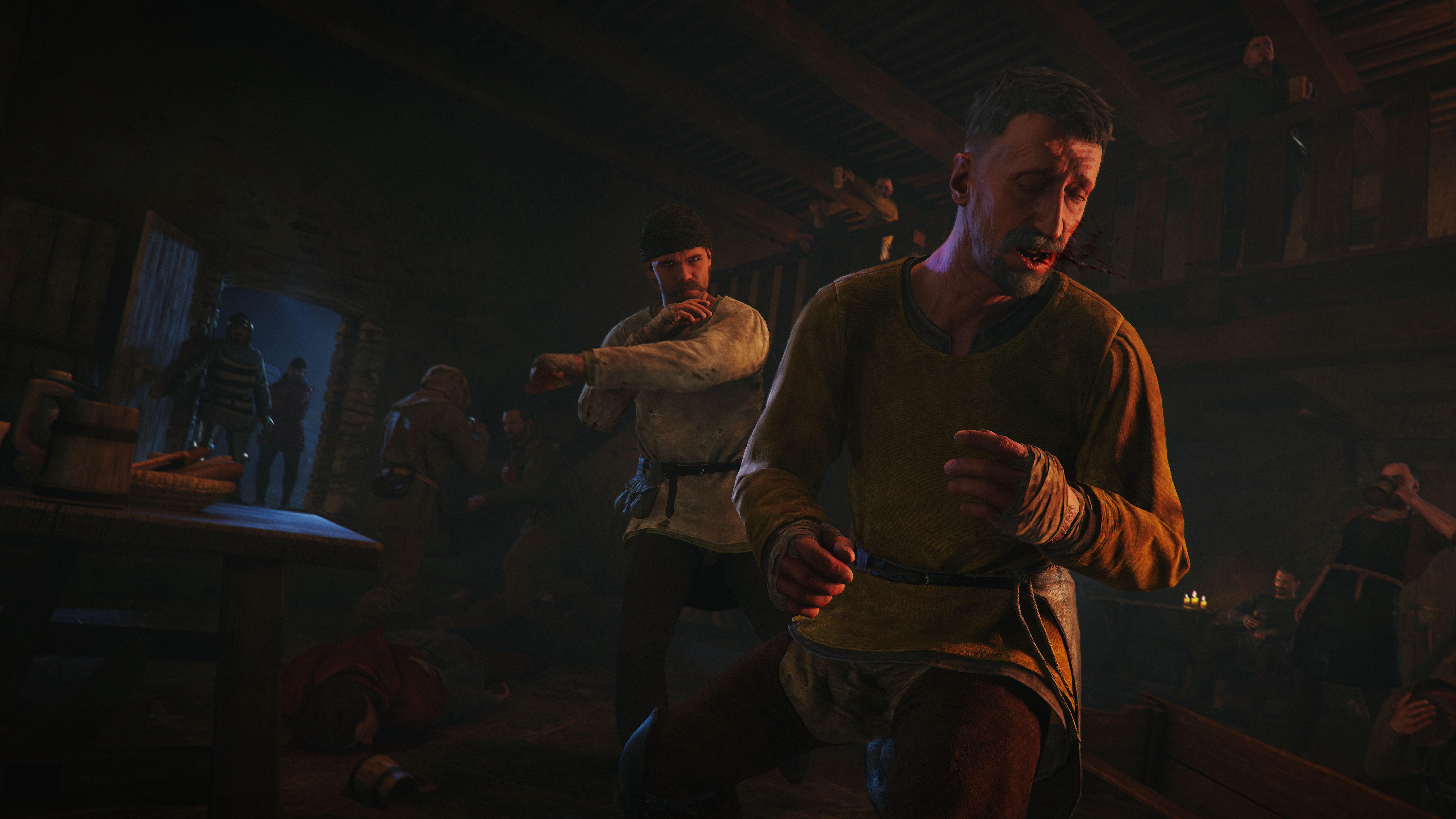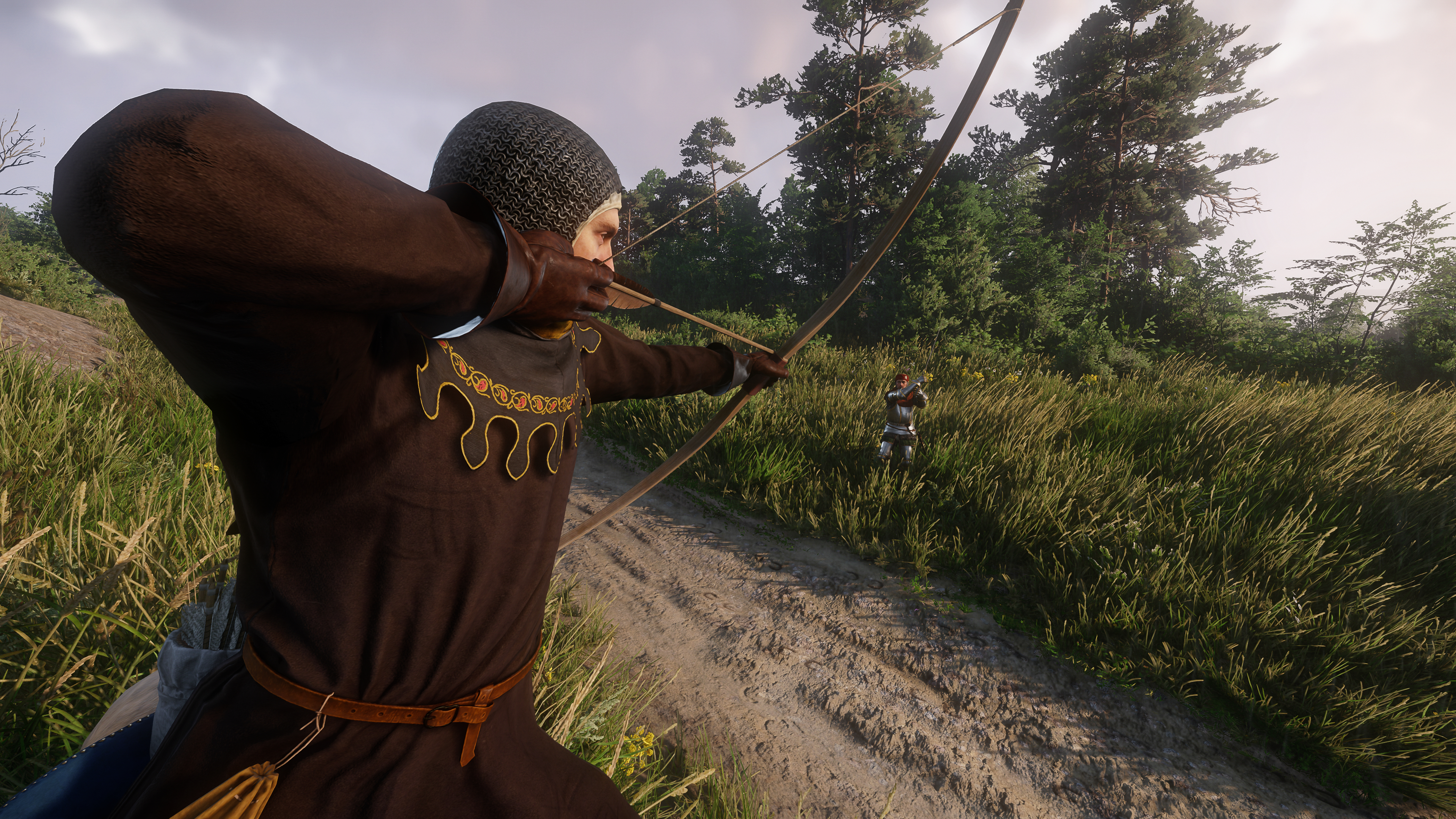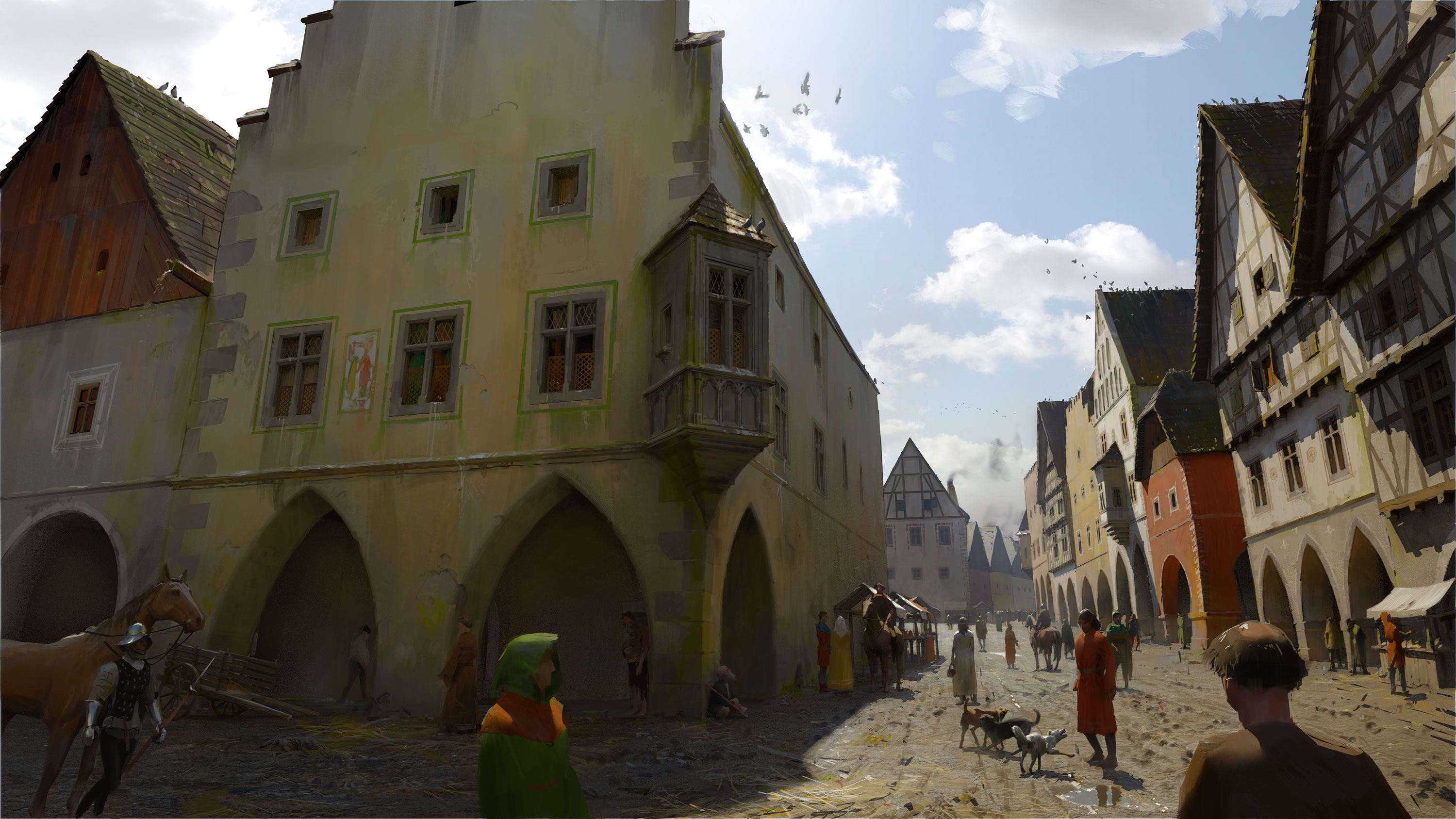Kingdom Come Deliverance 2 preview: shaping up to be an even more authentic and ambitious open-world adventure
“You can't change history”

Kingdom Come Deliverance 2 is shaping up to be almost everything that returning fans could want from a sequel. A follow-up to the 2018 medieval role-playing game (RPG) Kingdom Come Deliverance, it offers not only a direct continuation of its predecessor’s story, but a significantly larger world and noticeable mechanical improvements across the board.
With an adventure that spans two massive open-world maps - one based on the beautiful landscapes of the Bohemian Paradise and the other encompassing the medieval city of Kuttenberg - I spent almost four hours with an early build of the game to get a taste of what’s in store. This involved getting to grips with its dramatic opening chapter before jumping forward to a point much further on in the story to discover what life in a medieval town has to offer.
A new(ish) beginning

Henry once again returns as the protagonist, having fully transformed from an everyday village boy into a medieval hero over the course of the previous game. The narrative picks up mere moments from where it left off, with Henry traveling to a castle to deliver an important letter with his friend Hans Capon. As you can probably imagine, things don’t go to plan and your party is soon attacked by bandits. With their allies killed, Henry and Hans are able to narrowly escape but suffer serious injuries.
These dramatically affect your combat abilities, not to mention other key stats, setting Henry back and ensuring that he still has plenty of development ahead of him. You’re no longer the skilled soldier, master persuader, or cunning thief that you might have become by the end of the first game, but you’re also not starting again from zero. Henry can still read, for example, and still remembers the basics of swordplay.
Although very much made with players of the first game in mind, I was pleasantly surprised to discover that Kingdom Come Deliverance 2 makes plenty of accommodations for newcomers. Flashback sequences provide some key context, though don’t explain many of the finer details of the first game’s plot. Eager to discover how developer Warhorse Studios is balancing the act of creating a satisfying sequel with the need to attract new players, I chatted to PR manager Tobi Stolz-Zwilling about the development process.
He says that “when developing the game we had to keep in mind that we have a big community, six million people have played the game or at least bought it, so they want to have a continuation of a game that they love. But then the game generally also wants to target a broader audience [...] we can't just rely on the old fans.
“We only tell the player of KCD 2 the bare minimum necessary information they need to know,” he continues. “Henry will face terrible things, nightmares, flashbacks, and so on, and those should slowly bring you up to speed and give you some background information.” When it comes to the question of how to present this, “it's incorporated into the main story. It should be slowly and steadily given to you, for you to digest”.
Get daily insight, inspiration and deals in your inbox
Sign up for breaking news, reviews, opinion, top tech deals, and more.
Weapons of war

Some of the most common complaints from players of the first game were related to its tricky combat system, one area that I immediately noticed had been revised in the sequel. “In KCD 1 we said, ‘[combat] is easy to learn, but hard to master’. The ‘hard to master’, I'm sure we were excelling in that, but the ‘easy to learn’, not so much,” Stolz-Zwilling jokes.
Although broadly retaining the directional combat mechanics, swords can now be slashed in fewer overall directions, making the fast-paced duels easier to follow but without completely removing the need to focus on incoming attacks. Blunt maces, axes, early firearms, and crossbows also now provide simpler alternatives too. On top of this, fights not only feel smoother but look significantly better thanks to a brilliantly overhauled and expanded set of animations.

“In KCD 1, we had one sword master who came to the studio, got in the motion capture suit, and then did all the animations for all the weapons. This led to the result that most of the weapons felt relatively the same. They had the same movement sets and, while they had different stats, the animations were similar to each other,” Stolz-Zwilling begins. “In KCD 2 we have a sword master or weapon master for every single weapon type. So we have different sets of animations with different feels to it [and] different weights to it.” As for those who want to avoid combat entirely, many quests can be solved through speechcraft or diplomatic means.
The use of real-world weapon masters is also just one example of how historical accuracy remains a key focus in the creation of Kingdom Come Deliverance 2. “The main storyline of the game is really the one that is pushing those historical elements forward,” Stolz-Zwilling says, “you can't change history and if you play through the main story there are these tentpole moments, historical things that really happened, that you can be a part of. The side quests - most of them are the crazy ones, the funny ones, the weird ones, and so on - those should tell you something about everyday life in the Middle Ages.
“We have a full-time historian in the team and she is consulting with, I think over 30 different professors, universities, museums, probably even more than that - we have a huge list in the credits,” he explains.
City living


This intention to authentically recreate the past was especially clear when I arrived in the game’s second map, which features a digital rendition of medieval Kuttenberg. Roaming the bustling streets and watching the citizens going about their business feels eerily lifelike, an impressive departure from the emptier, more rural setting of the first game. “Creating this huge medieval city was definitely the biggest challenge,” Stolz-Zwilling says, “because we have thousands of NPCs (non-player characters) that are running around and they all have a daily cycle.”
He also outlines how these cycles open up a few interesting possibilities for emergent play: “[NPCs] wake up in the morning and they go to work, or wash themselves before eating and going to work. After work, they come home. They might go to the pub. If they go to the pub, they might drink. If they drink, they're easier to pickpocket and so on.”
Although I didn’t manage much pickpocketing in my time with the game, there were still a few occasions when this intricate system managed to put a smile on my face. One side quest saw me tasked with stealing a sword, something that I sensibly opted to complete under the cover of darkness. Unscrupulous request finished, I sprinted back to the quest giver at about 1am only to find him fast asleep, naked, in a room above a pub. Unable to wake him, I had to awkwardly trudge my way back through the deserted town in order to try to find my own place to stay until morning. In retrospect, waiting until daybreak seems like quite an obvious consideration, but the sleep routines of NPCs isn’t really something that I’ve ever had to contend with before.
I’m certainly looking forward to seeing what other strange situations I manage to get Henry into when Kingdom Come Deliverance 2 launches for PC, PlayStation 5, Xbox Series X, and Xbox Series S on February 11 next year.
You might also like...

Dash is a technology journalist who covers gaming hardware at TechRadar. Before joining the TechRadar team, he was writing gaming articles for some of the UK's biggest magazines including PLAY, Edge, PC Gamer, and SFX. Now, when he's not getting his greasy little mitts on the newest hardware or gaming gadget, he can be found listening to J-pop or feverishly devouring the latest Nintendo Switch otome.